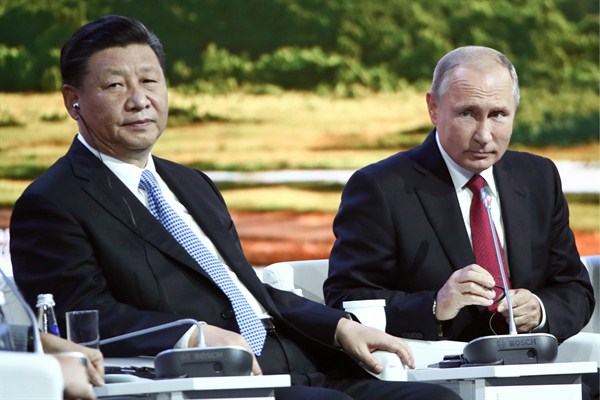Can the U.S. and its main geopolitical rivals bury their differences? World leaders are in New York for the United Nations General Assembly this week. The main question on everyone’s mind is what President Donald Trump will say. Last year, Trump struck a bellicose note during his first U.N. appearance. He effectively promised to rip up the Iranian nuclear deal, a pledge he has since kept, and threatened to “totally destroy” North Korea unless it gave up its own nuclear ambitions.
Trump’s speech presaged a rough year in U.N. diplomacy, as the Security Council has since then hobbled from dispute to dispute over the Syrian war, Yemen and the Salisbury poisoning incident. Arguments over trade and security are driving China, Russia and the U.S. further apart. Most observers expect the president to ratchet up pressure on Iran further at the U.N. this week, calling on other countries to cut off Tehran’s economic lifelines, and to exacerbate big-power tensions.
Is there any way for the U.S. and its competitors to stop their diplomatic relations from deteriorating further? Despite the bleak international mood, there is no shortage of big ideas about how Washington, Beijing and Moscow could reset their ties, as I note in a new essay for the United Nations Centre for Policy Research. These include potential bargains over Ukraine, North Korea and Syria.

